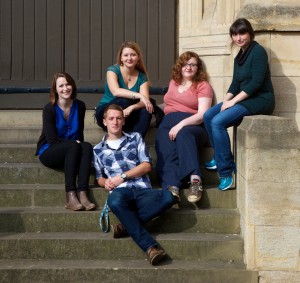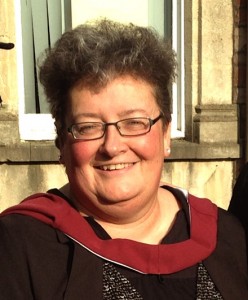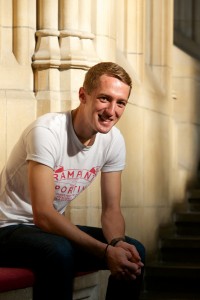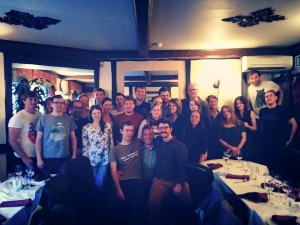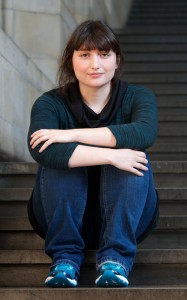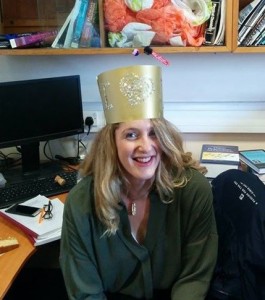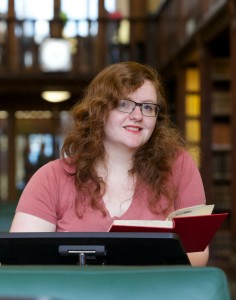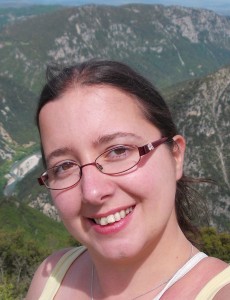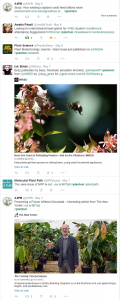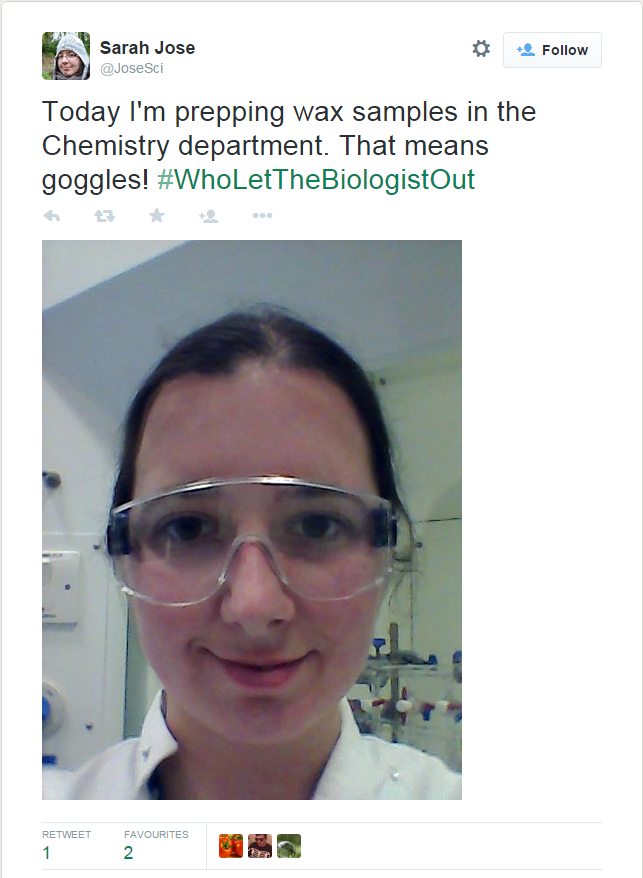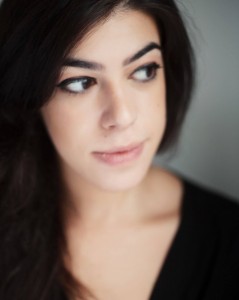Over the course of the past year we have brought together a diverse group of researchers, each completing a doctoral degree across a range of subjects, and at various points in their studies. Each of these researchers have provided unique insights into what completing a PhD is like, as they shared their experiences from week to week. As the ‘Year in the Life of a PhD’ draws to a close, we caught up with some of our researchers to reflect on where they were a year ago and to see how far they have come over the past year.
 Louise Wingrove, third-year postgraduate researcher in the department of Drama: Theatre, Film and Television.
Louise Wingrove, third-year postgraduate researcher in the department of Drama: Theatre, Film and Television.
A year ago I was nervously waiting to deliver a my first paper at a conference (which quickly became three conferences!) and was about to start teaching. Although these things were important to me, and I was really looking forward to them, the health problems I was also experiencing at the time and fact that I was approaching my final year did worry me more than I allowed myself to admit.
In the last year I have thoroughly enjoying delivering my first conference papers and teaching on my first module. I have seen my writing published for the first time in the wonderful ‘What the Frock book of funny women’ and been offered further writing opportunities. Most importantly, I have learnt to be far kinder to myself and accept my limitations, which has in turn resulted in a massive improvement in my productivity and thesis work. Through writing blog posts and agreeing to collaborate on a play about Jenny Hill for the excellent HIDden Theatre company I have begun to see how my research can be seen by and interest the wider world and, though the obvious concerns of post PhD employment still plague me, I feel excited and hopeful to see what the future holds. Providing I can get the thesis written and handed in of course!
 Richard Budd, recent graduate from the Graduate School of Education
Richard Budd, recent graduate from the Graduate School of Education
A year ago I was just about to submit my thesis, and was more or less at the end of my tether, having a young family, full-time work, and finally, finally, finally getting my PhD to the stage my supervisors were happy with. The year since then has mostly been about passing my viva, working, developing my profile through CPD and publication/impact activities, and applying for jobs. In a way it’s been frustrating because I didn’t know much about post-PhD employability back then but I certainly do now. Then, in the space of three weeks from the end of April this year, we welcomed our baby girl to the world and I was offered a (permanent!!!) job as a Lecturer in Education Studies at Liverpool Hope University. We’re moving house in about six weeks and the new job starts in September! I’ve barely had a chance to draw breath.
 Madeline Burke, third-year postgraduate researcher in the department of Cellular and Molecular Medicine
Madeline Burke, third-year postgraduate researcher in the department of Cellular and Molecular Medicine
A year ago I was very worried about my PhD, whether I was doing enough work, was I good enough, etc. But over the past year I’ve really learnt to manage my demons. It really helped reading other people’s blog posts and seeing how they were handling the aspects of the PhD that I found hard!
 Sarah Jose, third-year postgraduate researcher in plant science
Sarah Jose, third-year postgraduate researcher in plant science
A year ago I was halfway through my PhD with a lot of questions and not many answers. Now I am heading towards the final stages of laboratory-based research, and have started to get some answers that inevitably lead to more questions! At first this was causing me a lot of stress, thinking I’d never be “finished”. Now I realise that’s the nature of novel research – it’s based on exploring interesting questions unearthed by previous work. I’ve still got a way to go before I’m satisfied with the answers I’ve got though!
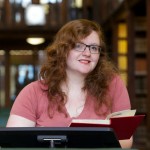 Rhiannon Easterbrook, second-year PhD candidate in the Department of Classics and Ancient History
Rhiannon Easterbrook, second-year PhD candidate in the Department of Classics and Ancient History
This time last year I was spending long days in the Grad School, preparing my upgrade material and wondering if I would ever see summer. Not only did I get a break but the work paid off. I passed my upgrade before launching myself into a year of new experiences: organising and presenting at conferences, teaching undergraduates, and significantly refining my approach to research. Now I’ve a good few thousand more words under by belt and much greater appreciation for both the range of duties academics cram into their time and my own resourcefulness. Still can’t wait for a summer break though.
 Elspeth Robertson, final-year PhD candidate in the School of Earth Sciences
Elspeth Robertson, final-year PhD candidate in the School of Earth Sciences
This time a year ago, I had three half-finished chapters and I was starting to knuckle down for the final slog. I was quite intimidated by the thought of how much I still had to do (both actual science and writing), but I was starting to get a nervous excitement about the prospect of finishing. During the course of the year, I have handed in, successfully defended my thesis, submitted my corrections and I am due to graduate this month. Currently, I am relieved it is all over!
 Dominika Bijos, final-year PhD candidate in Physiology and Pharmacology
Dominika Bijos, final-year PhD candidate in Physiology and Pharmacology
A year ago I won the 3MT competition during the turbulent summer of writing my thesis. Final stages of writing coincided with fast-tract realisation that life post-PhD might not be easy. I submitted, defended (no corrections!), moved cities, went to Canada as a visiting scientist, came back, graduated in February and worked on a new project for a few months still in Bristol. I co-organise (4th year running) a conference for early career researchers in my field – all of it from attracting funding to on the day details – it’s my contribution to the community 🙂 Now I work on my CPD.
I enjoyed writing for BDC so much I started my own blog at www.scienceyesorknow.com.
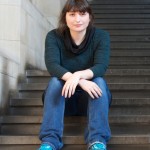 Rebecca Ingle, second-year PhD student in the Bristol Laser Group in the School of Chemistry
Rebecca Ingle, second-year PhD student in the Bristol Laser Group in the School of Chemistry
In a year, it doesn’t seem like a lot has changed. This time last year, I was working in Japan and now, I’m back there again, trying some new and exciting experiments. The end of the second year of my PhD is drawing worryingly close and sometimes, given the slow nature of research, I find myself wondering what I’ve actually achieved. However, when I attend seminars or look at new experimental set-ups, it’s clear that I’ve actually learnt a huge amount since I started. The challenge for me this coming year is more of the same, keep persevering, learning everything I can and writing things up.
 James Hickey, final-year PhD student in the School of Earth Sciences
James Hickey, final-year PhD student in the School of Earth Sciences
This time last year I was scrambling around to gather the data for my final thesis chapter, whilst simultaneously working on the penultimate chapter. I was also lucky enough to take a 6-week study visit at the University of British Columbia in Vancouver, which was the perfect way to escape the rigours of my regular office/email/department and solely focus on my own work.
Nine months later I was finished and submitted my thesis. I am now waiting to graduate and working as a postdoc with my PhD supervisor to finish off some side projects and write up some papers. I’ll then be moving to Clermont Ferrand in France to take up a new postdoc position at the University of Blaise Pascal (while frantically searching for the Holy Grail – a permanent position…!).
The whole experience has been stressful, exhilarating, exhausting and manic in equal measure. But I’m glad I did it.
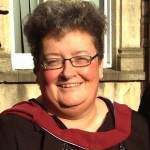 Tessa Coombes, first-year postgraduate researcher in the School for Policy Studies
Tessa Coombes, first-year postgraduate researcher in the School for Policy Studies
Just 1 year ago I was in the middle of writing my MSc dissertation, whilst also thinking about applying to do a PhD. It seems like a long time ago now, but also it’s gone really quickly. I can’t quite believe I’ve nearly finished my first year (surely I should have made more progress than this in a year?). I’m currently at the stage of putting together all the documentation I need for my “Progression Review”, what they used to call an Upgrade Report. So I’m grappling with writing up my theoretical framework and methodology, along with a recognition of the ethical implications of an ethnographic study! All this so I can actually begin my fieldwork in time for the lead-in to the 2016 Mayoral election in Bristol.


